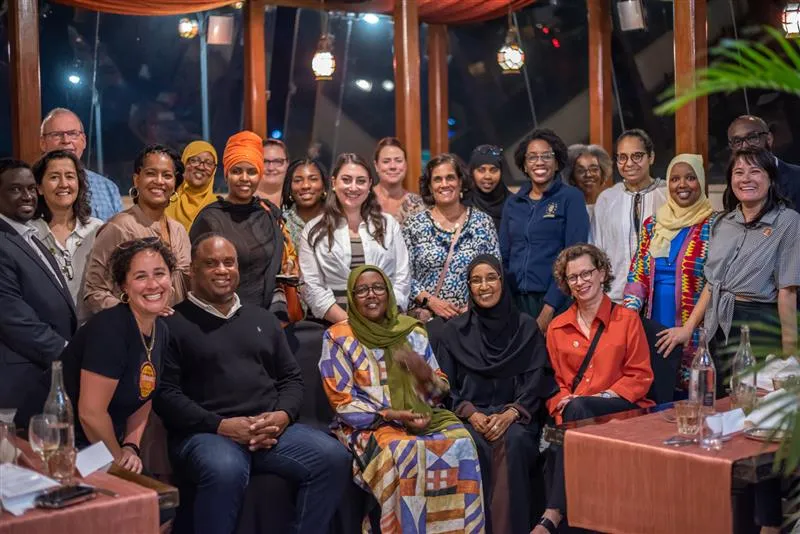Bipartisan Delegation of Six Congress Members Visit Kenya with CARE Learning Tours and Save the Children Action Network to Learn About the Global Hunger Crisis
Members spent time with communities dealing with drought in Turkana and met with civil society, the US Mission, and the Kenyan Government during trip
Washington, DC—From April 10th -14th, A bipartisan delegation of six U.S. Congressional Representatives traveled to Kenya with CARE and Save the Children’s Action Network (SCAN) to learn about how U.S. foreign investments are enabling communities to thrive and find durable solutions to hunger and malnutrition in the region, even as they experience economic hardship, conflict, and humanitarian crises.
The delegation included Rep. Morgan Griffith (VA-09), Rep. Jahana Hayes (CT-05), Rep. Jonathan Jackson (Il-01), Rep. Sara Jacobs (CA-51), Rep. Sydney Kamlager-Dove (CA-37) and Rep. Lauren Underwood (IL14), as well as Arion Laws (Legislative Aide for Rep. Sara Jacobs), Michelle Nunn (President and CEO of CARE USA), Janti Soeripto (President and CEO, SCAN), Ritu Sharma (Vice President, U.S. Programs, Policy and Advocacy CARE USA), Christy Gleason (Executive Director, SCAN).
Over six days the delegates visited humanitarian and development programs throughout the country, spending time with communities and seeing firsthand how they are impacted by hunger and poverty. They met with local leaders and community members to learn how communities have come together to build financial security after losing their livestock and subsequently their financial stability. They spoke with mothers who have adopted new forms of livelihood to support their own families as well as their neighbors. The group explored how emergency response must be paired with and often evolve into long-term development when crises and challenges like those facing the Kenyan people are recurring and protracted. Finally, they met with businesses that are working with smallholder farmers to create more equitable and resilient supply chains.
Sites visited included Kakuma Refugee Camp, Riokomor and Kangalita villages in Turkana County, a Farmer Field and Business School in Naivasha, and a Feed the Future site in Nairobi. The delegation was able to hear both directly from community members as well as implementors including Plan International, Population Aid Services, Zamzam Foundation, Somalia NGO Consortium, Nagaad Network, World Food Programme, Lutheran World Relief, World Vision, International Rescue Committee, CARE Kenya, Save the Children Kenya, Action Against Hunger, USAID Nawiri, African Women’s Agricultural Network, Red Cross Kenya, Mery Corps, Concern Worldwide, and USAID’s Feed the Future.
East Africa is currently in the midst of an ongoing food crisis, with vulnerable communities seeing their food systems eroded by the compound shocks of conflict, climate change, and global inflation. In Kenya, almost 1 million children under the age of five and 115,725 pregnant and lactating women are acutely malnourished (CARE). These are part of the 4.4 million Kenyans who are facing a severe drought and acute food insecurity (WFP). The Government of Kenya declared the drought a national disaster in September 2021 but as the cost of living skyrockets and the country continues to feel the impact of the Ukraine conflict, it is expected that hundreds of thousands more people will continue to slip into hunger. The hunger crisis has also caused massive displacement, with estimates indicating at least 3.2 million people across the Horn have moved from their homes in search of food and water, even crossing borders. Kenya alone hosts nearly one million refugees. (UNHCR)
For media inquiries, please contact: Anisa Husain, CARE USA Press Officer, anisa.husain@care.org

